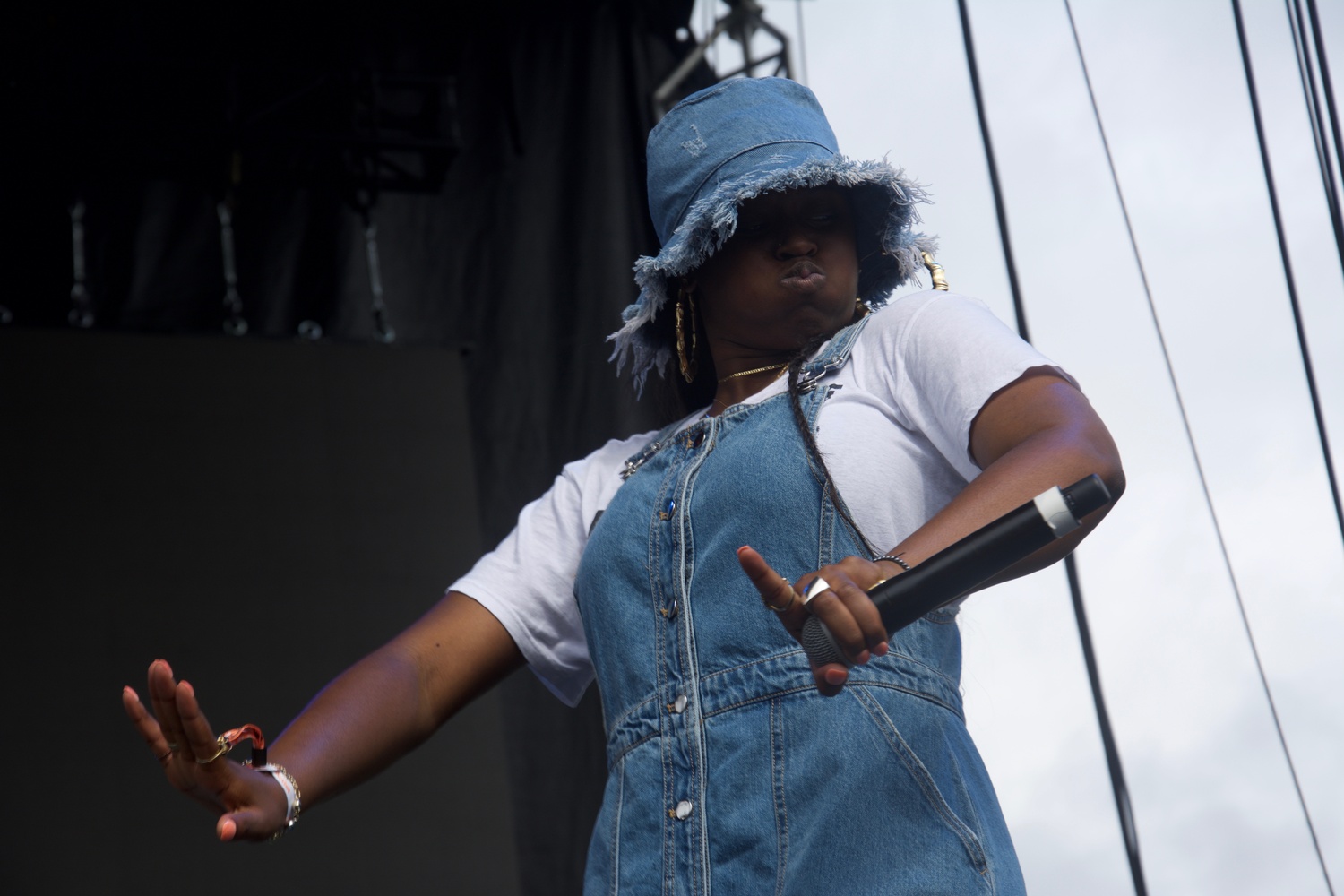
News
Cambridge Residents Slam Council Proposal to Delay Bike Lane Construction

News
‘Gender-Affirming Slay Fest’: Harvard College QSA Hosts Annual Queer Prom

News
‘Not Being Nerds’: Harvard Students Dance to Tinashe at Yardfest

News
Wrongful Death Trial Against CAMHS Employee Over 2015 Student Suicide To Begin Tuesday

News
Cornel West, Harvard Affiliates Call for University to Divest from ‘Israeli Apartheid’ at Rally
From Pitchfork Music Festival 2018: Danielle's Friday Sound Bites
The Curls
Each year, Pitchfork uses its high-profile festival as an opportunity to bring attention to local Chicago-based musicians. They kicked off this year’s festival with Windy City natives The Curls, a fun, nostalgic sextet whose genre fluidity necessitates a string of hyphenated descriptors—“art-funk-jazz-psycho-punk-pop-rock” doesn’t even cover all the bases. Embracing kitsch rather than avoiding it, The Curls borrow their favorite little nuggets from every era of music. Back-up singers performed goofy choreographed dances with lead singer Anna Holmquist, completing a three-part harmony reminiscent of ‘60s girl groups, ‘90s Riot Grrrl, and modern punk bands like T-Rextasy. A hipster moustache-clad brass section swayed from side to side as they embellished songs with the grandest, corniest funky flourishes. Various band members channeled ‘70s punk by wearing t-shirts emblazoned with Sharpie slogans like “No Cop Academy” and “Fund Community and Schools,” while playing psychedelic guitar riffs that could have been written by Jimi Hendrix on songs like, “Prickly Feelings.” Even “Macarena” made its way into the performance. It all could have easily felt like a grown up version of Saturday Night Live’s “High School Theatre Show” if it weren’t so much fun to watch the band loving pop culture with such earnest, nerdy fervor.
Joshua Abrams & Natural Information Society
There’s one artist on every festival lineup that makes you wonder, “What the hell were they thinking?” This year’s chin-scratcher was the Dude Lebowski lookalike Joshua Abrams, former bassist for hip-hop legends The Roots, whose 50-minute set consisted of one song, a loop built around a three-stringed African lute called the guimbri. Abrams is not the first white guy to take inspiration from African music—although Vampire Weekend and even Peter Gabriel are a little more hip with the kids. That said, festival-goers enthusiastically sucked on their dab pens as they surrendered themselves to the enrapturing trance of Natural Information Society. The “song” (perhaps it would be more accurately described as an experience) droned on with a weird momentum that felt heavy and sticky like sludge, trapping you in and allowing you to truly get “lost in the music.” While most band members remained stone-faced (except for the occasional “I’m feeling this so hard” grimace popular with only the most devoted musicians), toward the end of the set, Abrams often broke into a grin as he plunked his guimbri, whose sound combines the richness of an upright bass with the bounce of a marimba. Was he laughing to himself about the absurdity of his presence? Or was he simply taking delight in the music he was making? There’s a lot about Joshua Abrams and the Natural Information Society that’s hard to explain.
Tierra Whack
It can’t be fun to have to replace Earl Sweatshirt, and rapper Tierra Whack did not try to hide her anxiety (“I was nervous as fuck backstage. Are you guys bored?”). Her gentle self-deprecation didn’t feel cloying, but refreshingly genuine, just like the 15 one-minute songs that make up her “Whack World,” her debut album, which includes a short film that oozes with fierce creativity. Whack, however, does not rely on the colorful visuals—her Pitchfork performance proved that her energy and cleverness are more than enough to charm an audience. Although the rapper arrived onstage 10 minutes late and left 15 minutes early (having a 15-minute long discography has its downsides), she made up for brevity with engagement, demanding audience participation with questions (“What song do you motherfuckers wanna hear?), prescribed dance moves (“If you know this song, put your hands up!”), and call-and-response chants (“When I say ‘whack,’ you say ‘whack!’”) With the audience adequately hyped, Whack’s uniquely imaginative and pleasantly addictive songs shone like the diamonds and pearls referenced in her song, “Hungry Hippo.” Along with tabletop games made popular by relentless advertisements, Whack sang with glee and goofiness about everything from fruit salad (à la The Wiggles) to her dearly departed do. And, to Whack’s delighted surprise, much of the audience sang right along with her.
Mount Kimbie
You might know Mount Kimbie as the guys who do the beats under a few King Krule songs. Though their set was relatively sparsely attended (most festivalgoers forewent the post-dubstep duo to see indie rocker Courtney Barnett), it was one of Friday’s best performances. Dominic Maker, Kai Campos, and the vocalist/synth player who joined them onstage stood their ground with an effortless cool that felt contagious rather than intimidating. When all three musicians turned their heads side to side with the beat, they looked so cool that many audience members felt the need to try out the move for themselves. Mount Kimbie’s audience also danced far more than at any other Friday set—while the average Pitchfork audience stands still and JUULs thoughtfully, Mount Kimbie’s delicious beats nudged his crowd into a smooth frenzy. To be fair, the vocals were nowhere near as iconic as those by frequent collaborators like Krule, Micachu, or James Blake, but this only highlighted the aesthetic beauty of Mount Kimbie’s melodies and the soft, bouncy synths, which flowed sweetly with the post-rain breeze.
—Staff writer Danielle Eisenman can be reached at danielle.eisenman@thecrimson.com.
Want to keep up with breaking news? Subscribe to our email newsletter.

